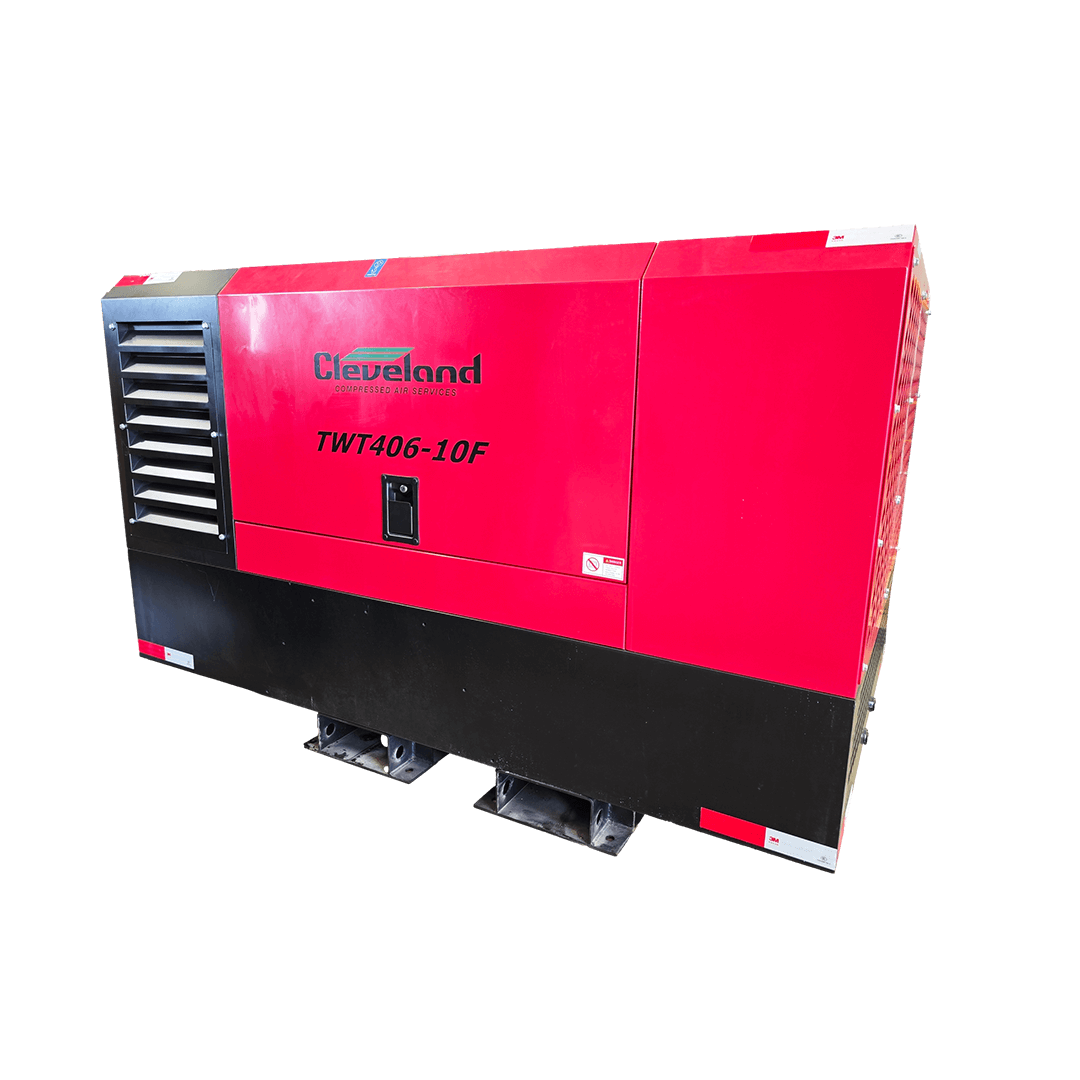
Enquiry Form
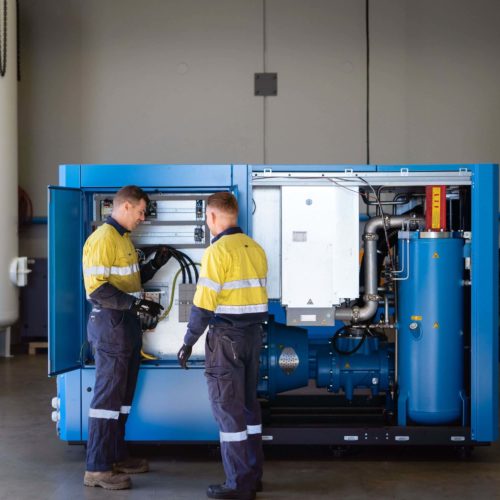

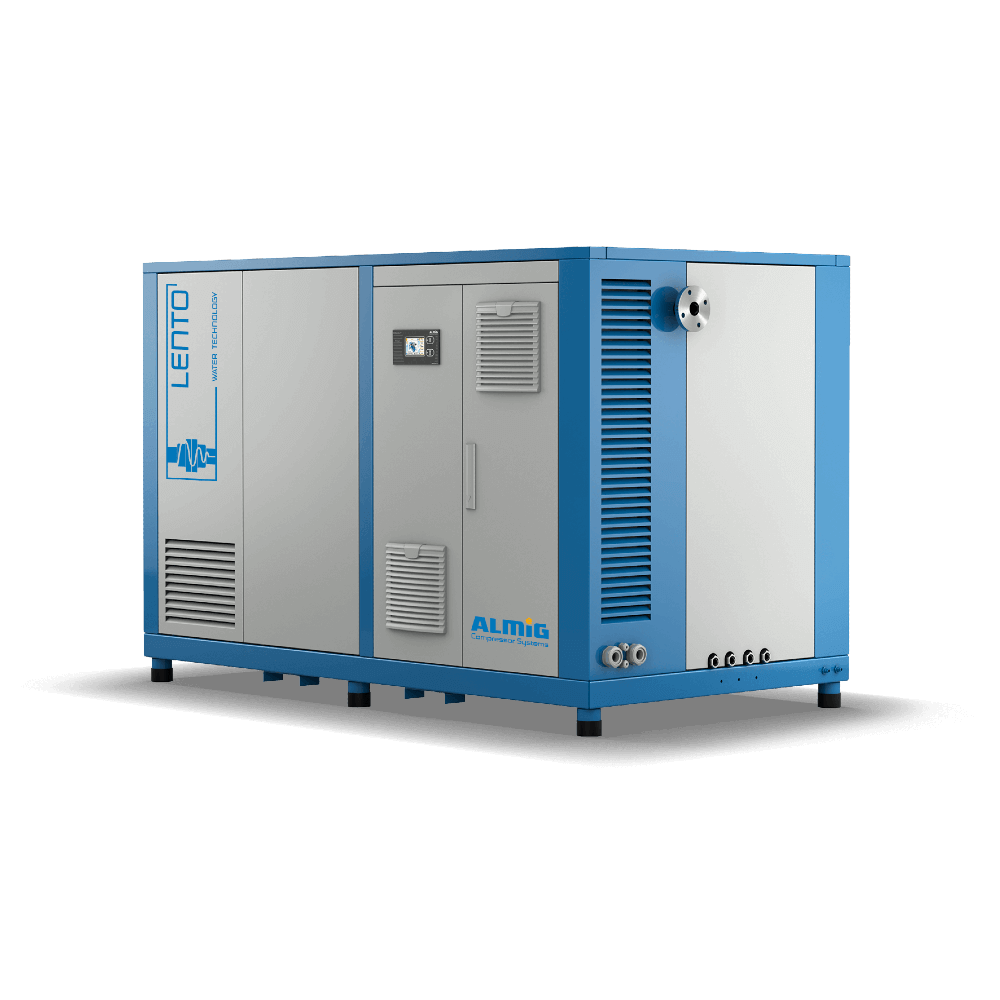
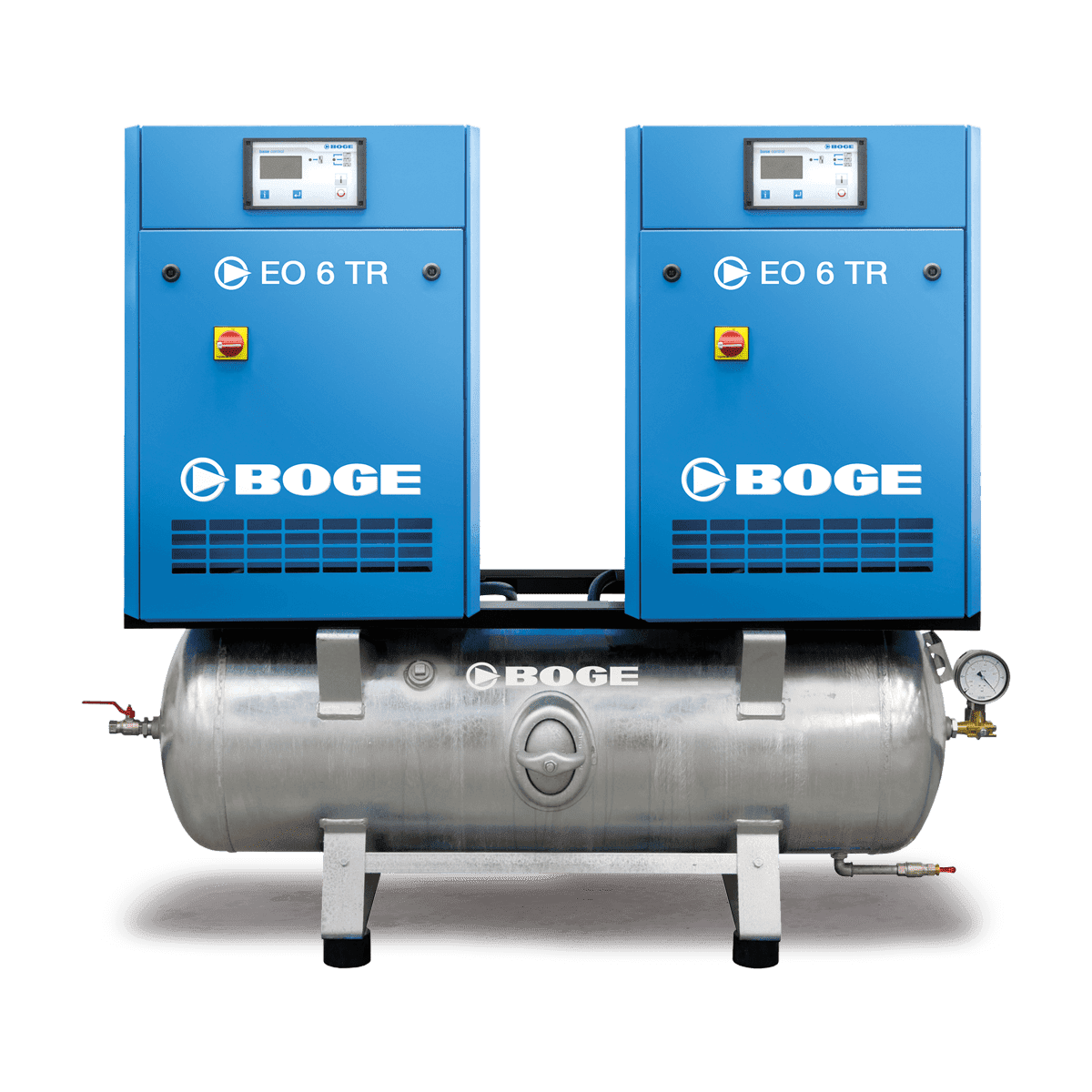
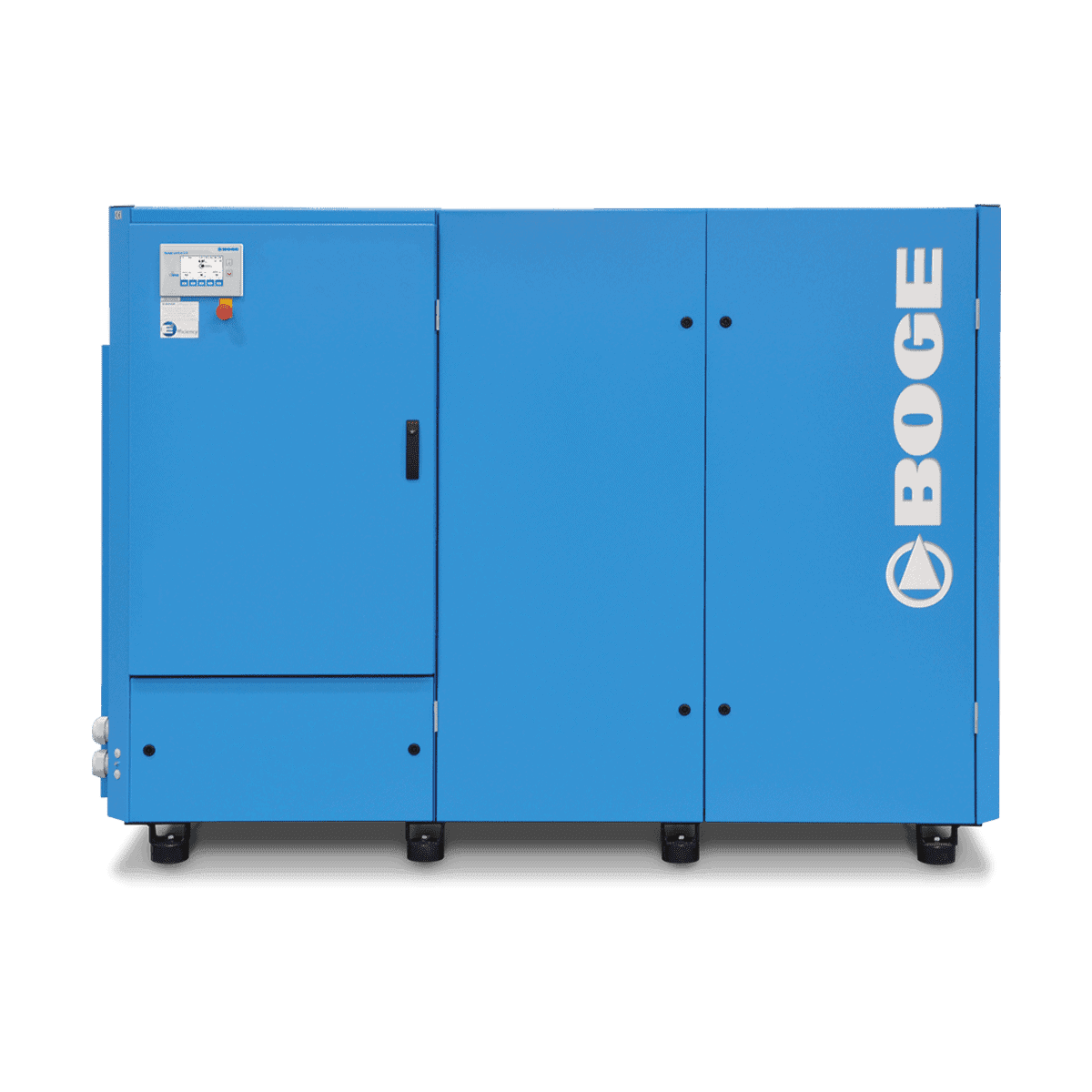
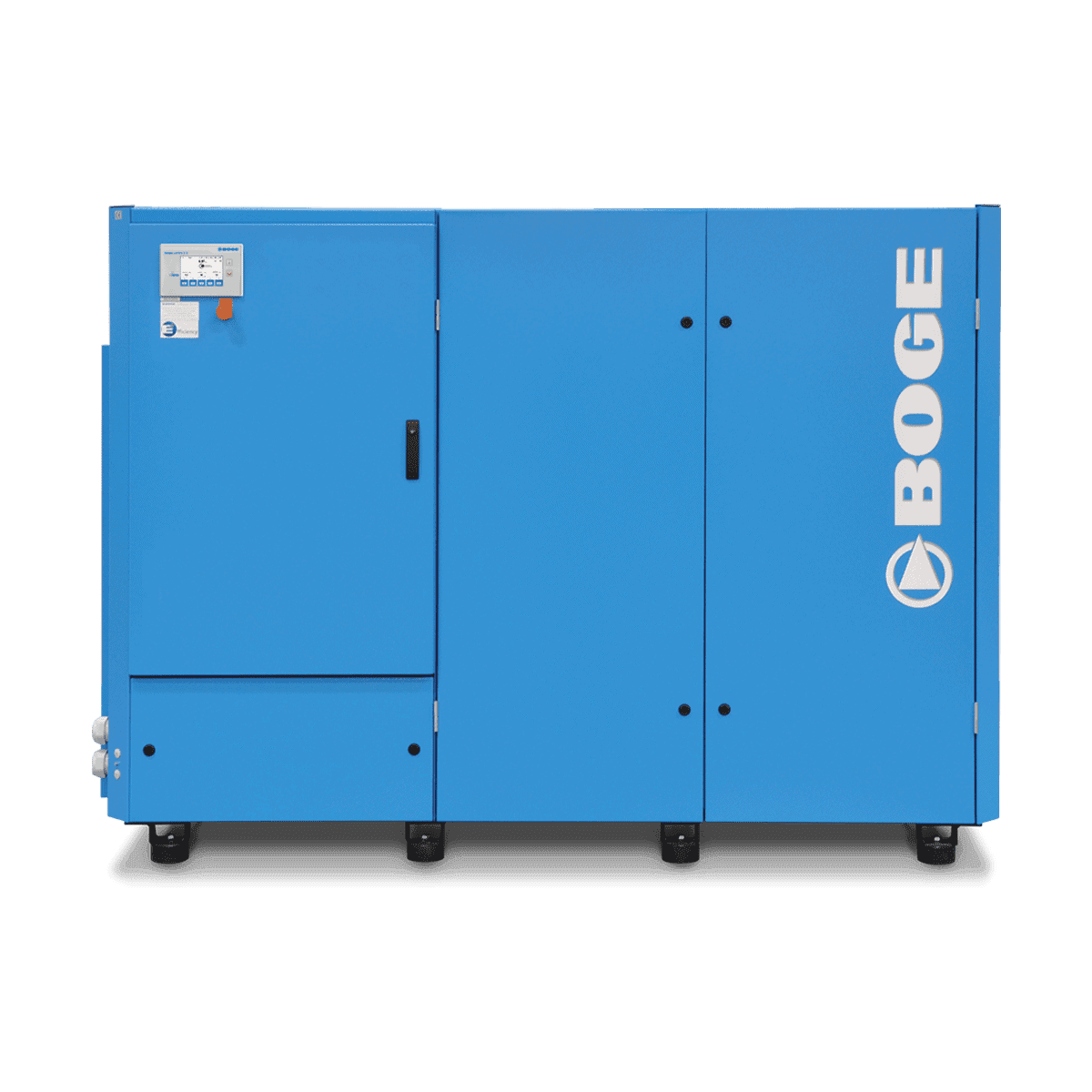
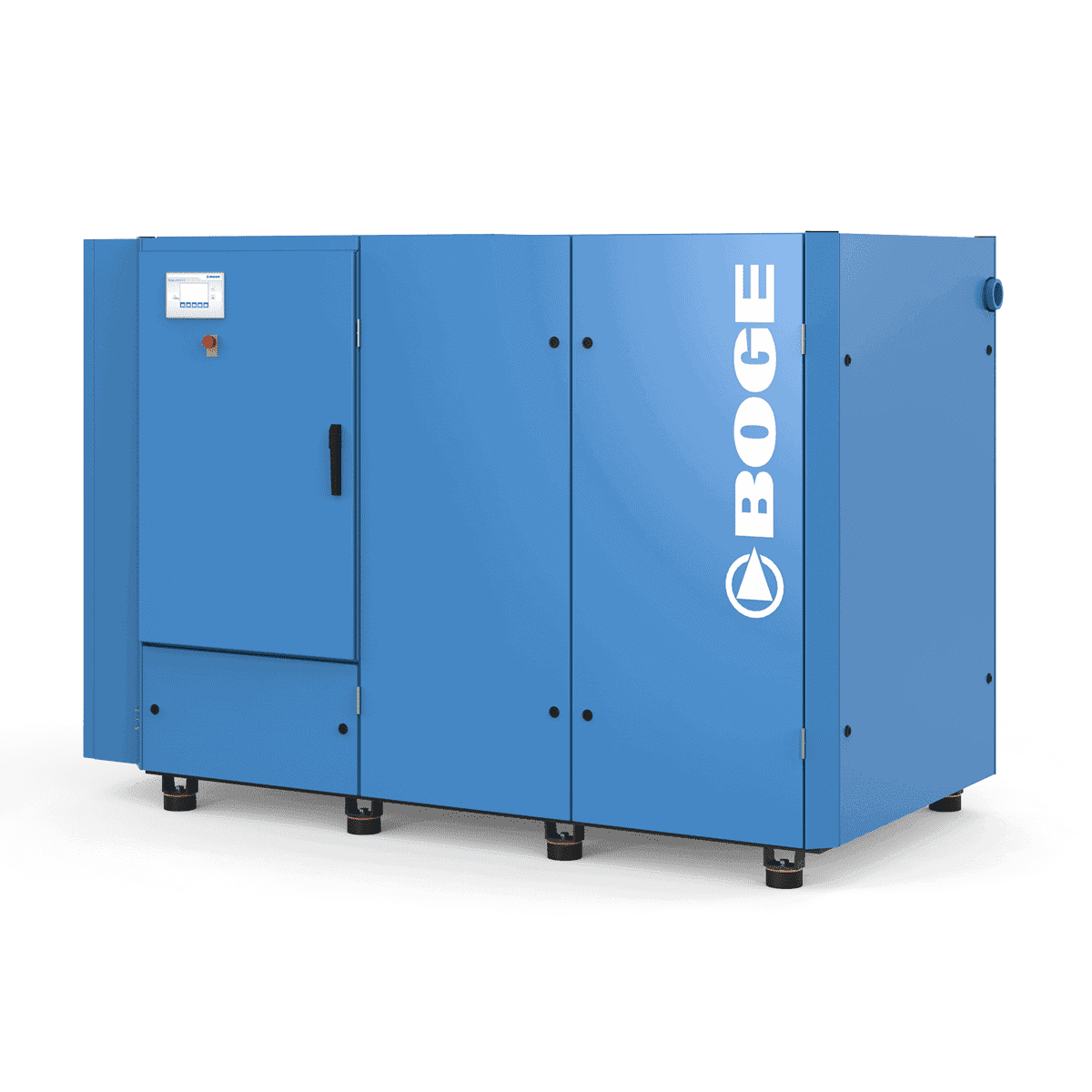
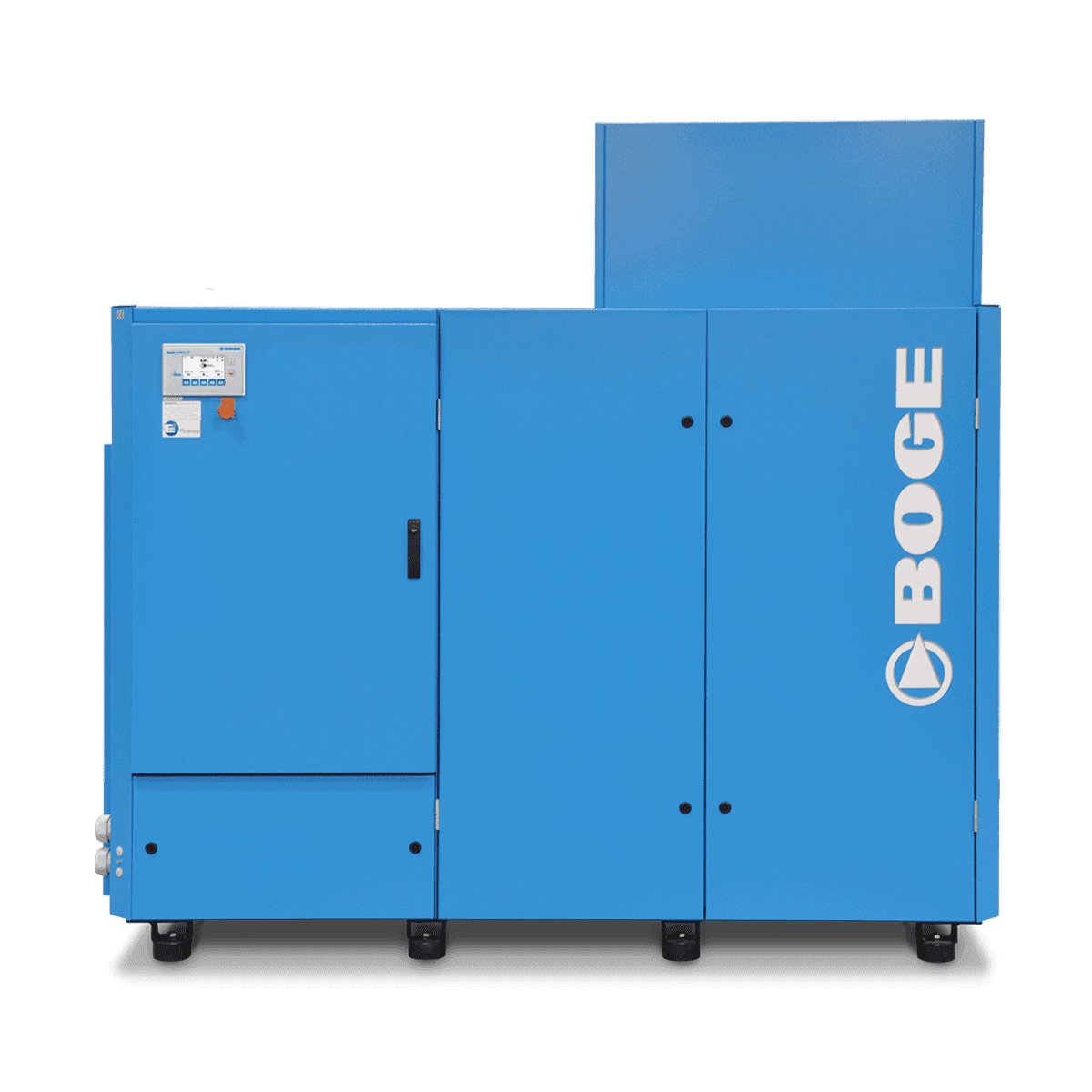
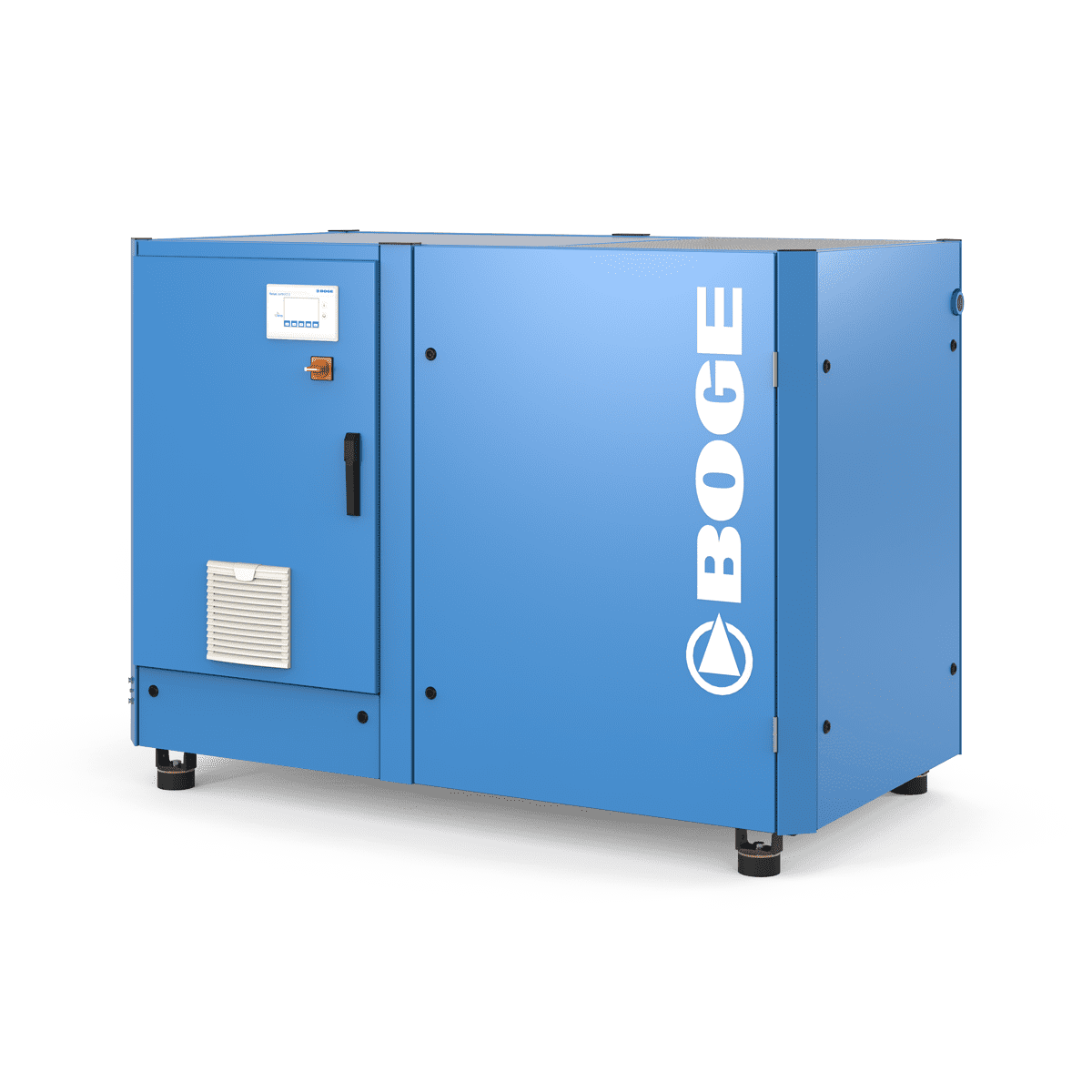
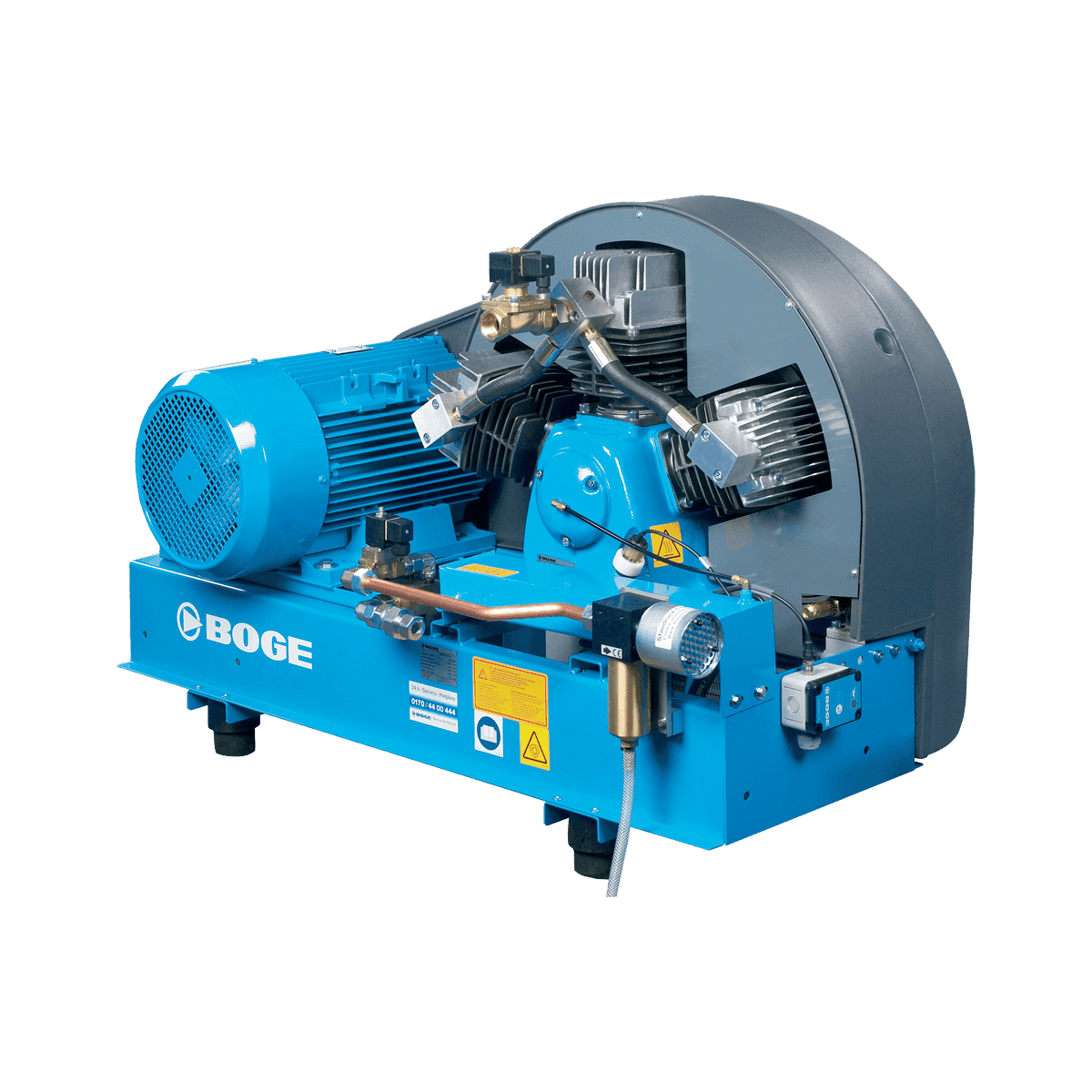
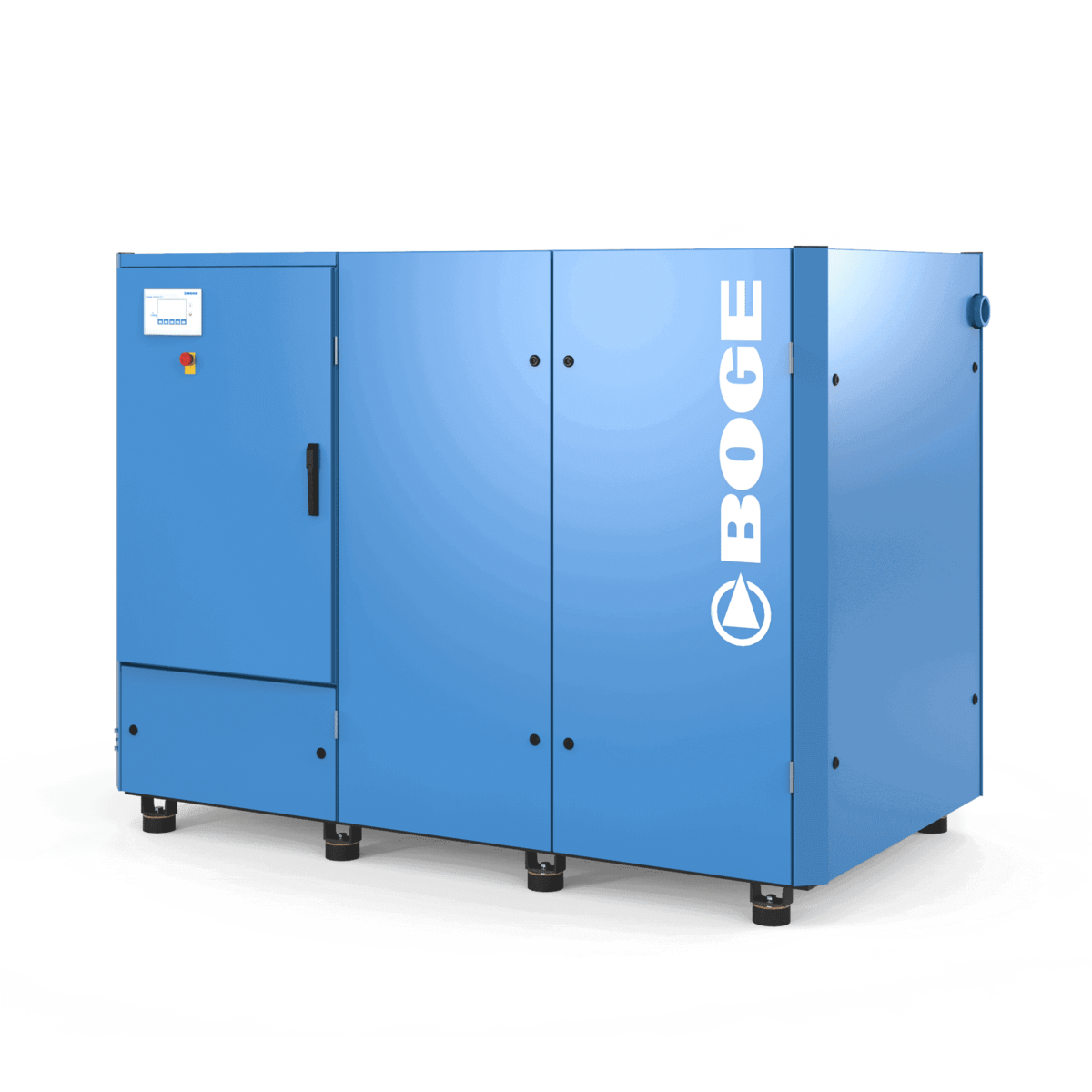
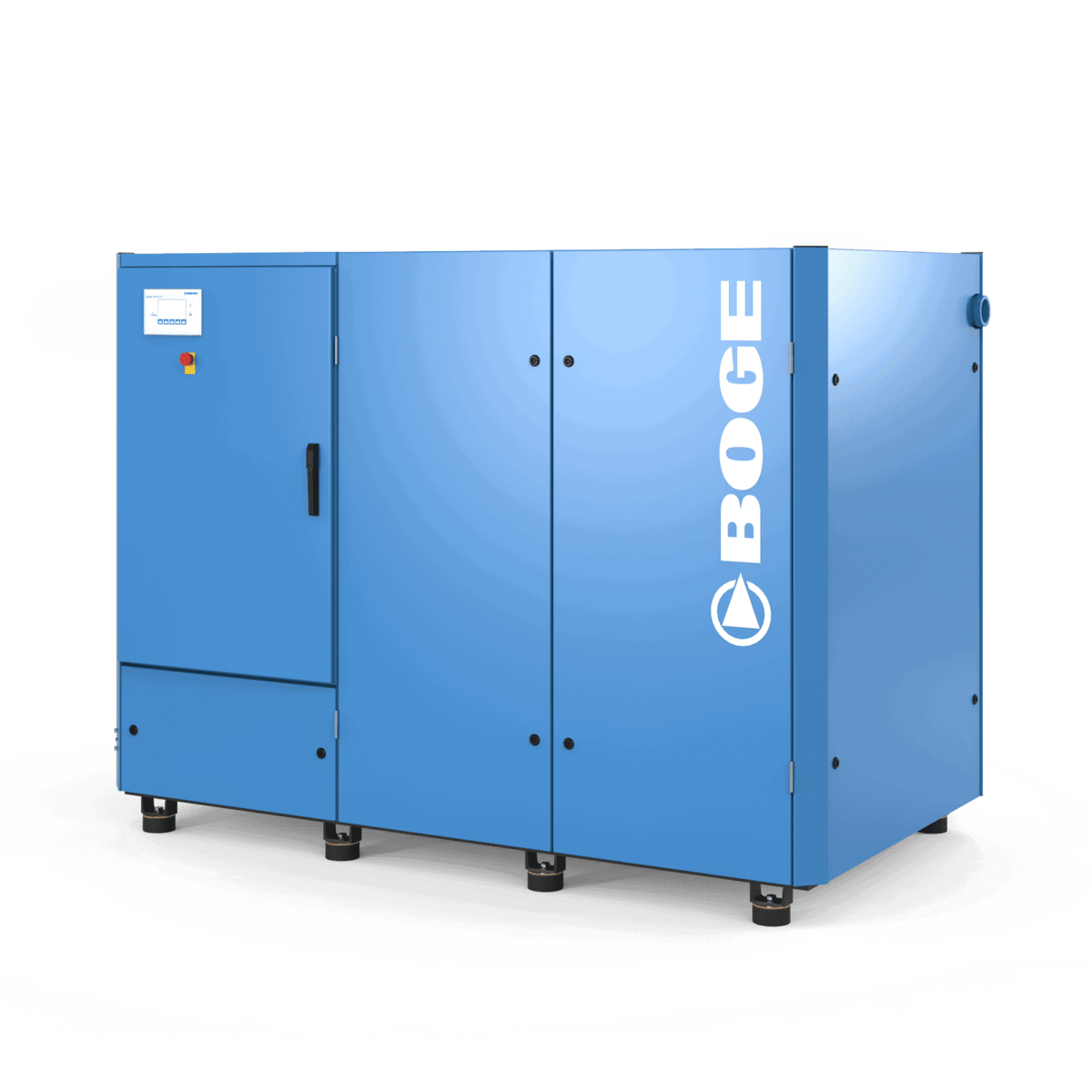
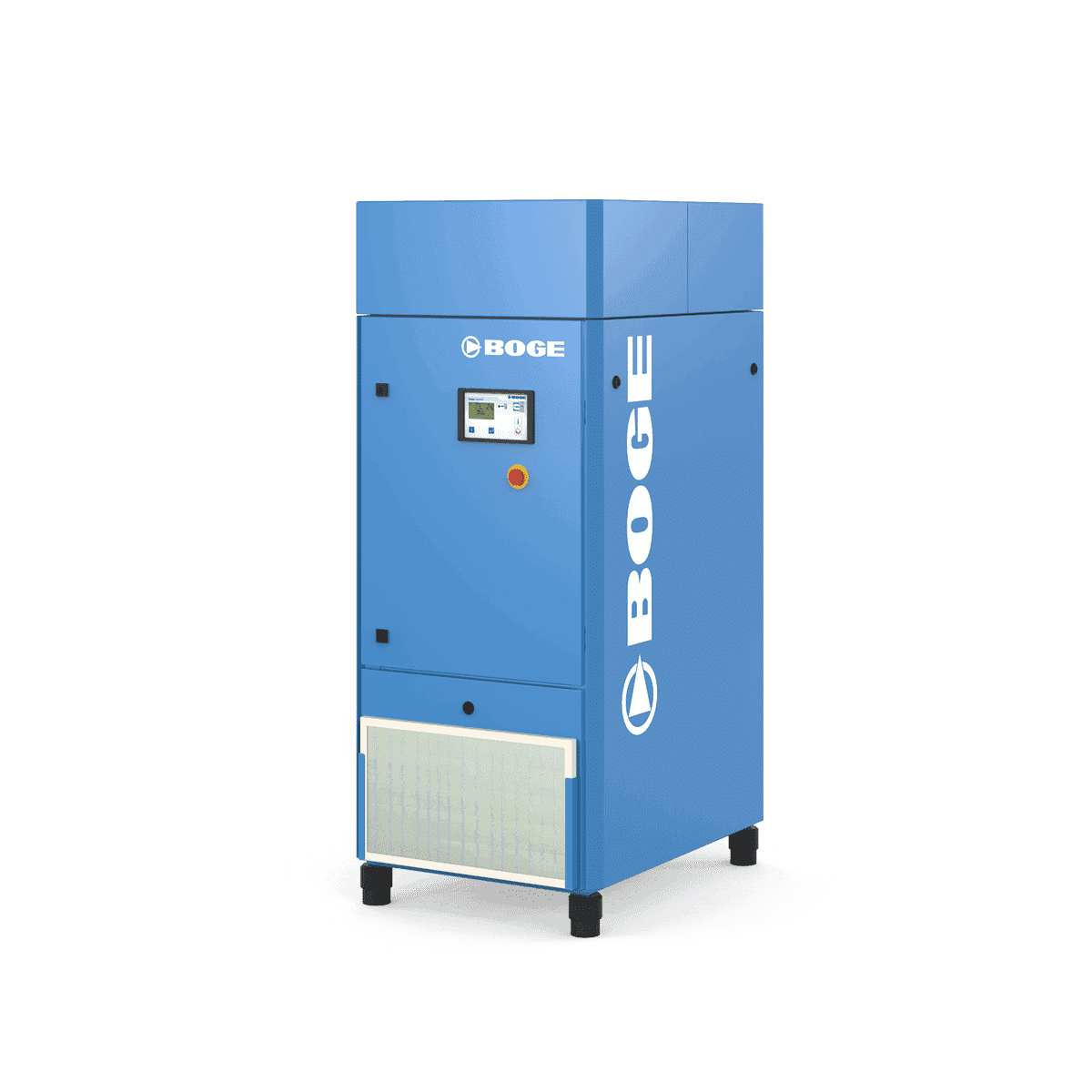
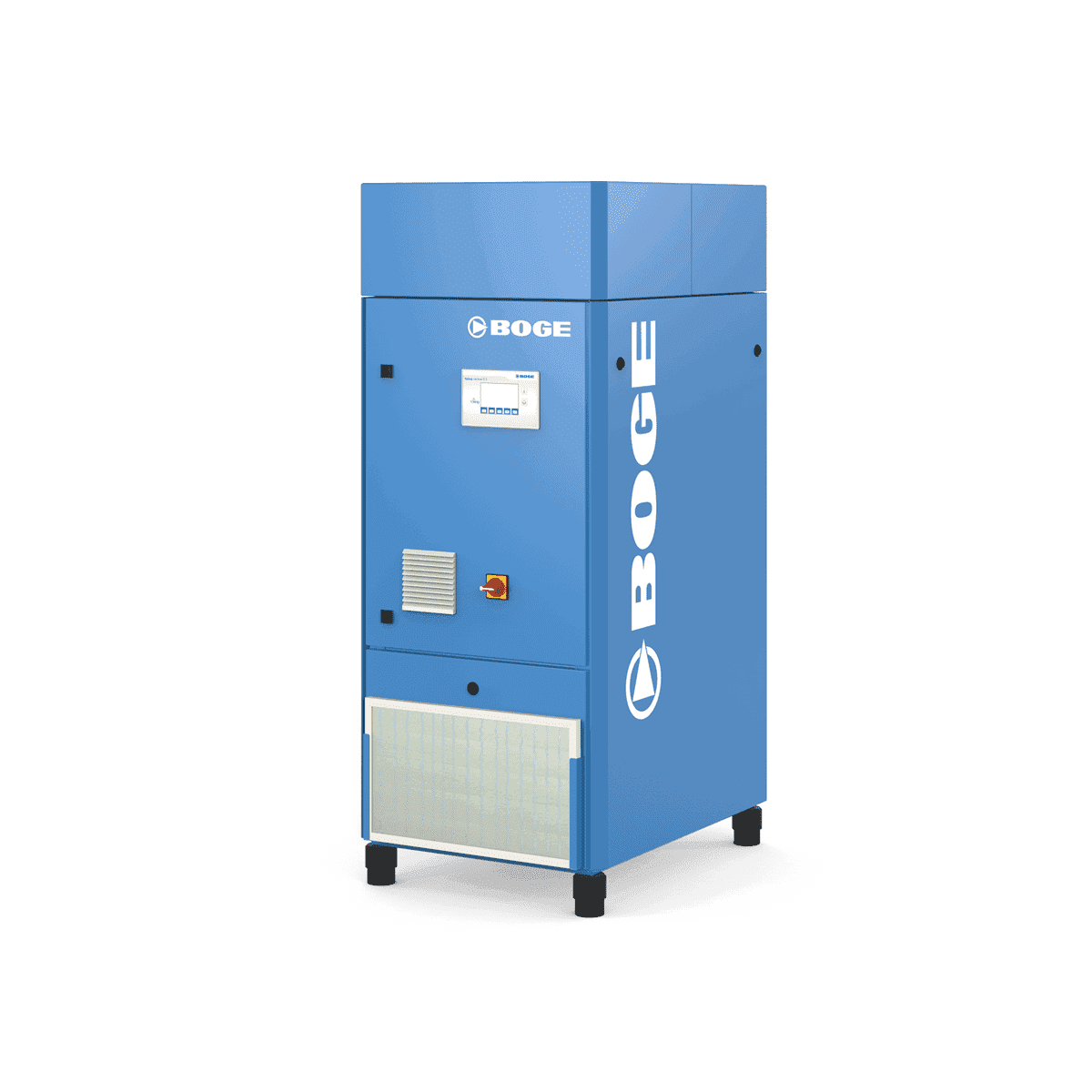
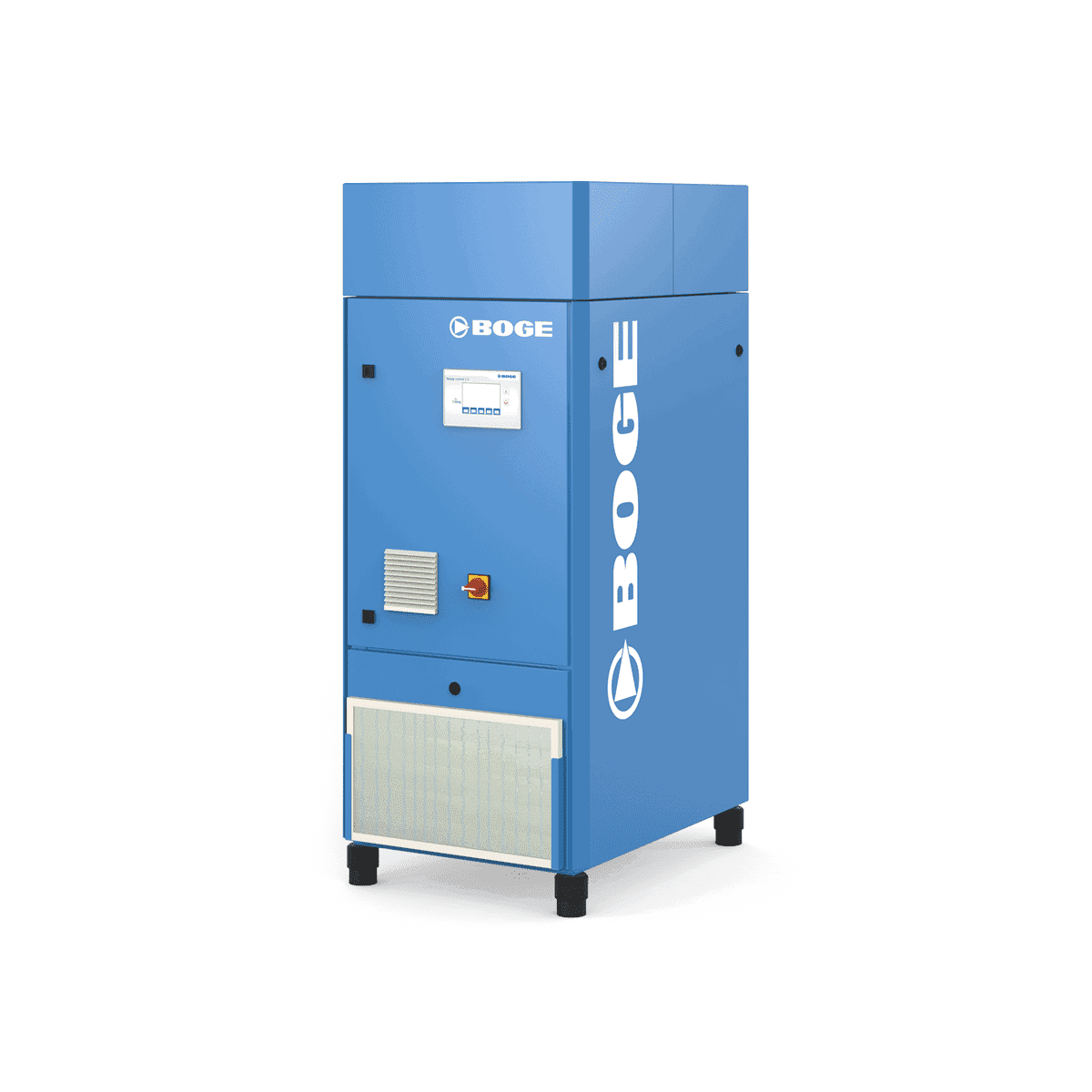
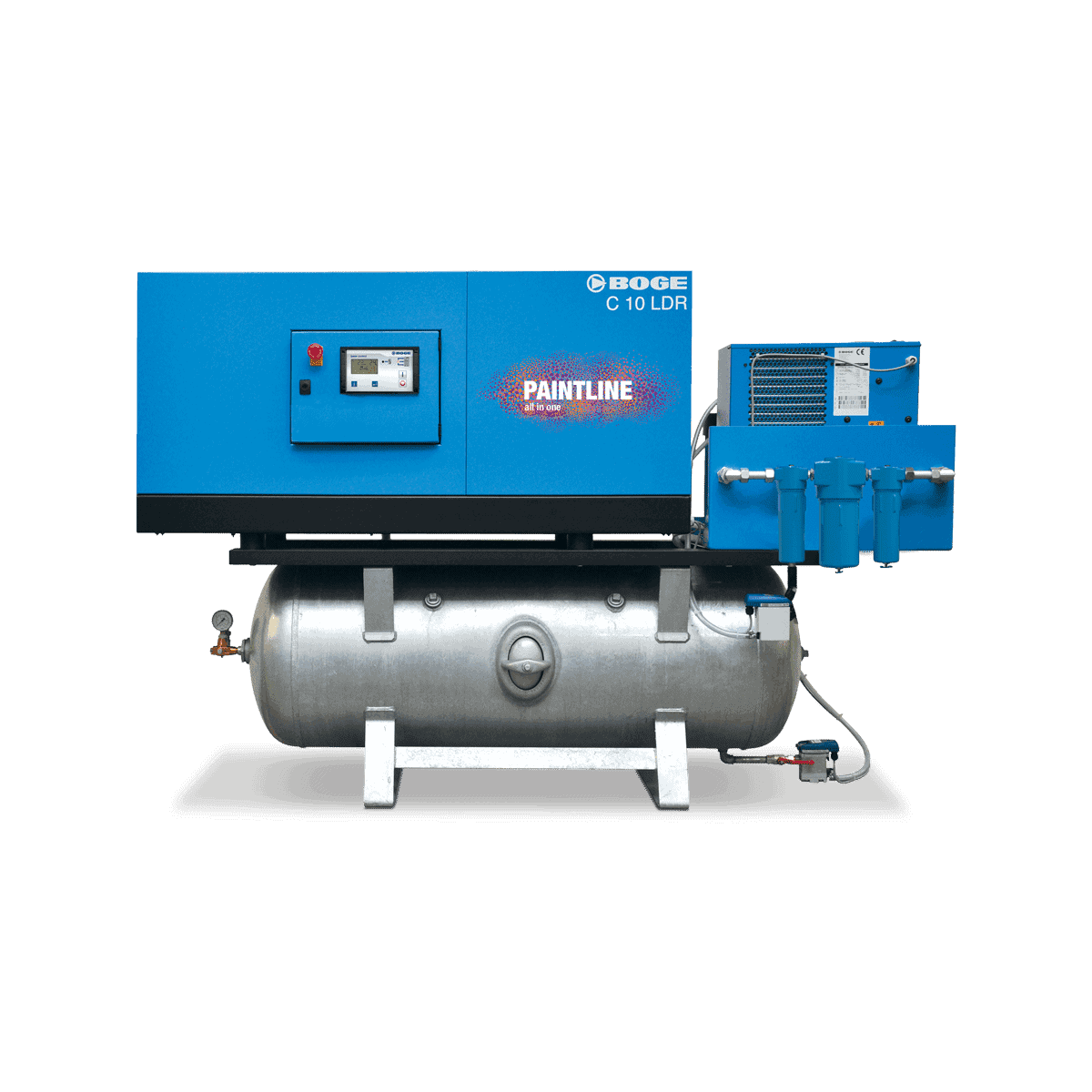
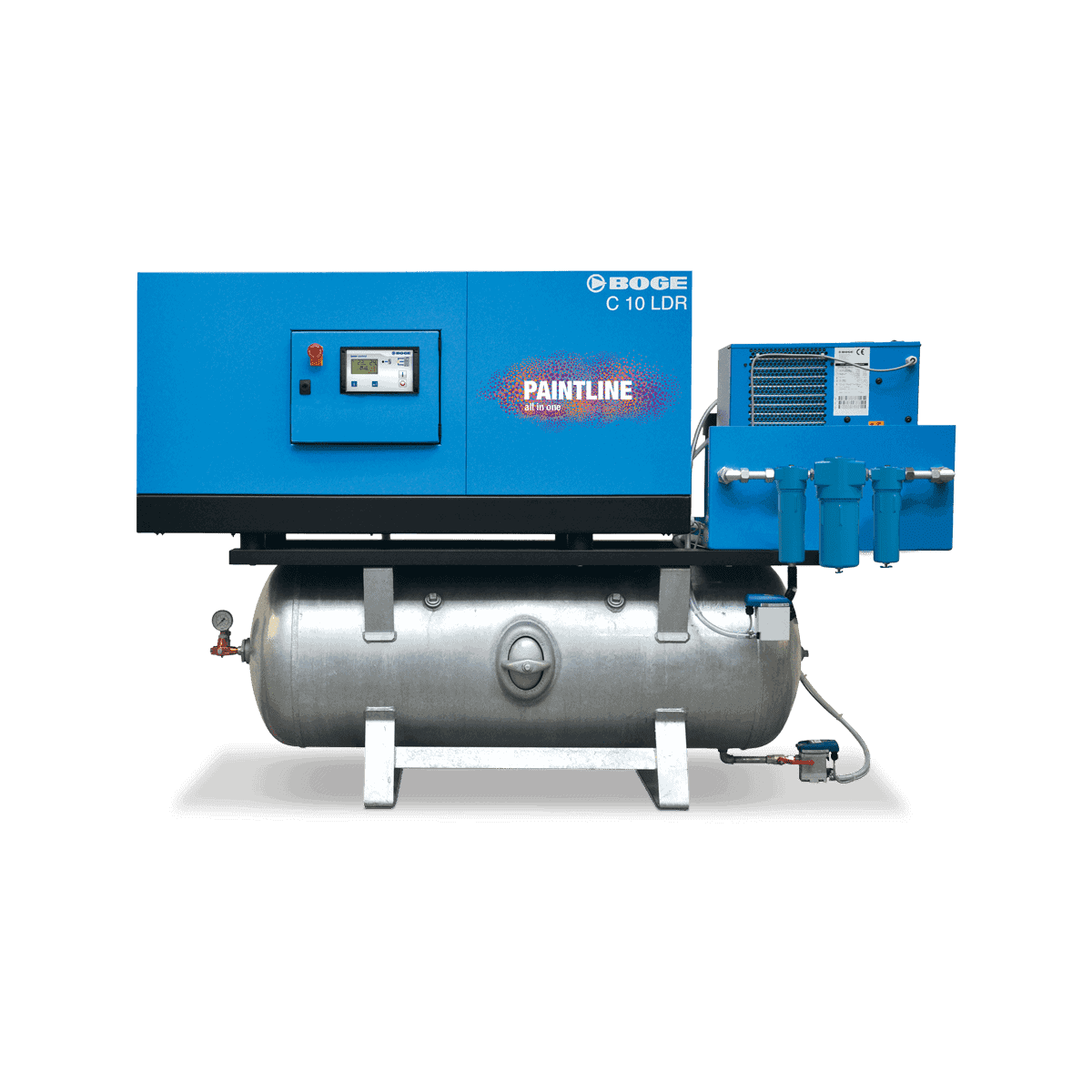
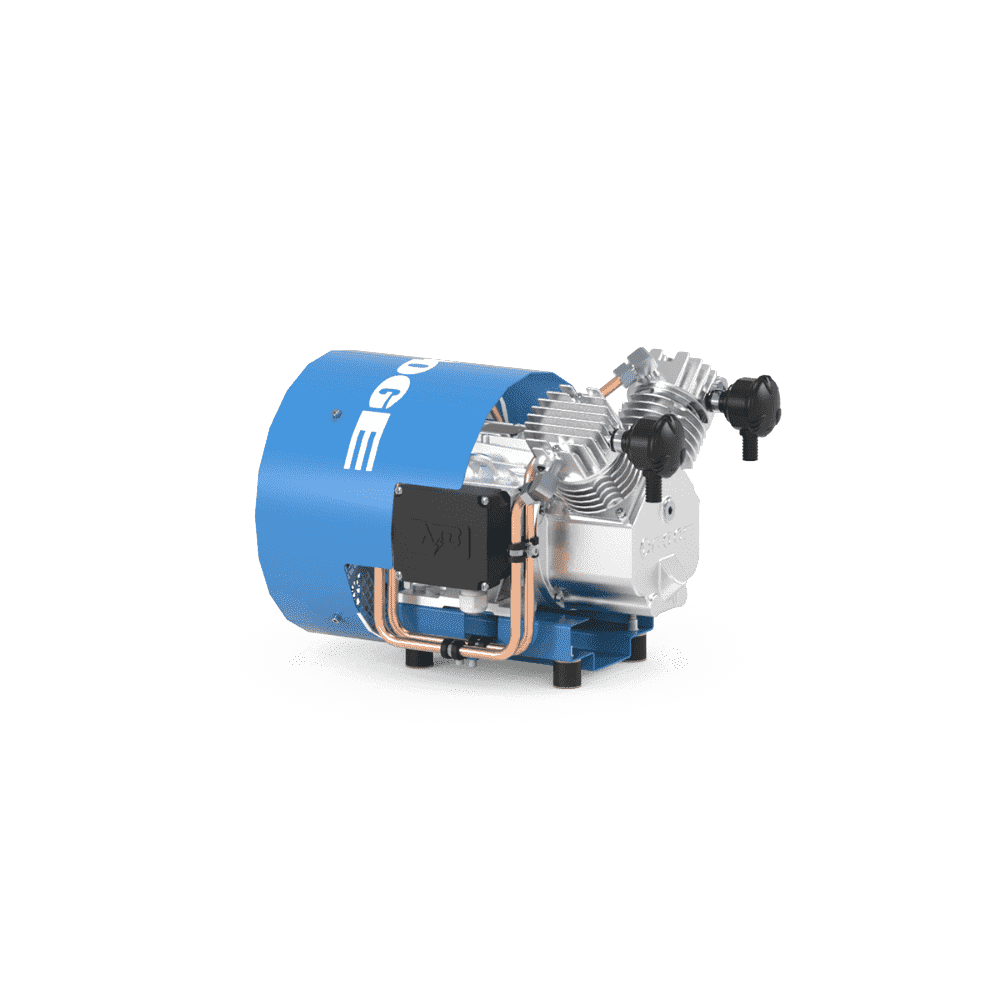
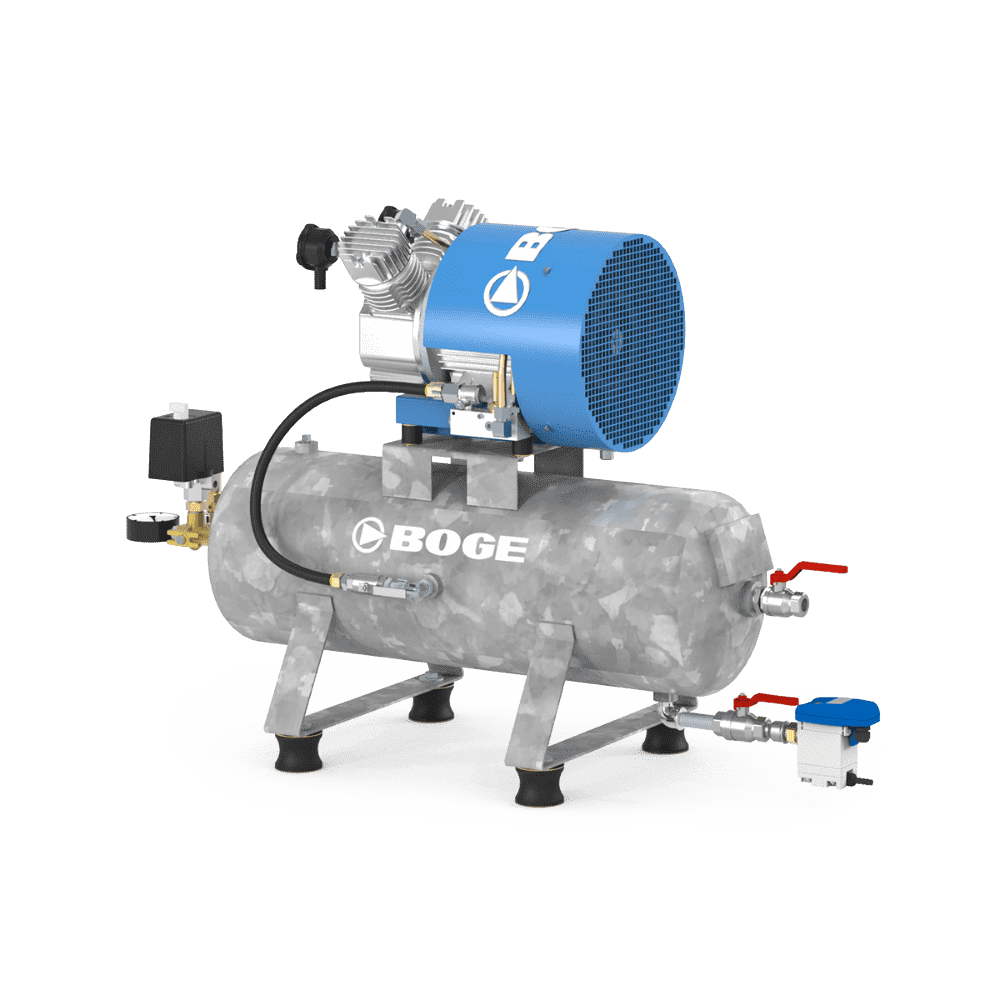
Cleveland Compressed Air Services offers comprehensive industrial air compressor systems with turnkey packages designed to meet your unique operational needs. Our range includes:
Selecting the right size air compressor is crucial to ensure optimal performance and efficiency for your specific applications. Factors such as airflow, pressure, and power sources should be considered to match the compressor capacity with your operational needs.
Not sure what the right industrial air compressor is for you? Not a problem! Cleveland’s comprehensive air compressor service will see our industrial air compressor experts visit your site and perform an audit to determine the optimum compressed air installation arrangement, saving you both time and money.
If you believe there is no substitute for quality, get in touch with a specialist supplier like Cleveland Compressors to maximise performance, reduce energy consumption, and reduce the operating costs of your industrial compressor system. Together, we can increase the reliability, efficiency and growth of your business.
Regular maintenance and repair are essential to ensure the optimal performance and longevity of industrial air compressors. Here are some common maintenance tasks to keep your compressors running smoothly:
By adhering to these maintenance practices, you can ensure that your industrial air compressors deliver reliable performance and have a longer service life.
Industrial air compressors are powerful tools that, if not handled properly, can pose safety risks. To ensure safe and effective operation, follow these essential safety precautions and guidelines:
By following these safety guidelines and staying on top of routine maintenance and repair, you can minimise risks and maintain a safe, efficient working environment when using industrial air compressors. Cleveland Compressed Air Services provides expert maintenance and repair services to keep your equipment operating at peak performance, ensuring the longevity and safety of your compressed air system.
At Cleveland Compressed Air Services, we pride ourselves on providing many businesses and industries across Australia with the best industrial compressors and services in the compressed air manufacturing industry. We offer customised solutions, high-quality compressed air products and a friendly company culture built on core values such as integrity, social responsibility and accountability.
As one of Australia’s leading providers of industrial air compressors, we recognise the importance of providing high-quality air applications and machinery, innovative solutions, and professional and timely support. If you’re interested in learning more about our range of compressed air systems and equipment, please call us today on (08) 9452 3669, email us at info@ccair.net.au or contact us online.
When choosing an air compressor, it’s important to understand the key differences between piston compressors and rotary screw compressors, as each is suited to different applications.
Piston Air Compressor
Rotary Screw Air Compressor
Oil-free compressors are designed for environments where even the smallest traces of oil are unacceptable, such as in food production. While they may have a higher initial cost and a shorter lifespan compared to oil-lubricated compressors, they provide a clean, contamination-free solution for sensitive applications. If maintaining air purity is a top priority, an oil-free compressor is the ideal choice. Here are a few key factors to consider when selecting the right air compressor for your needs.
Oil-Injected Air Compressor
Oil-Free Air Compressor
What size compressor you need is completely dependent on what air-operated equipment you plan on using. To work out what size would be best for you, add up the air usage of all air tools that will be used simultaneously. It’s best to add an extra 20% - 25% to allow for future usage down the track. This is only a rough guide, the best way to ensure you have the correct size machine is to request a compressed air energy audit.
No, they do not. It’s always best to check for any problems after the first start-up but after that, you are ready to go. If you do find any leaks or problems, turn the machine off and be sure to contact your product provider before operating any air compressor equipment again.
Many air compressors are able to run off generators, however, it is not recommended. If you have access to mains electricity, it is recommended you use that to power your air compressor equipment. Generators have fluctuations in power which can cause problems for compressors as they require a constant voltage to run. It is even more important for rotary screw compressors to be run off mains electricity rather than generators due to their constant operation.
Oil change frequency usually depends on the specific model of air compressor. The best way to assure it is being changed adequately is to read the recommended schedule in the owner’s manual. If you do not have access to an owner’s manual, the best way to find your answer is to contact your provider with the model number of your machine.
If you are only using your machine occasionally, then an annual service of your compressed air equipment should be sufficient. If you are operating your air compressor routinely, then it may be best to service it quarterly. It is always recommended to do small services whenever you have the ability and time to.
If you are ever worried that your air compressor is not working the way it is intended, it is always safest to turn the unit off and have trained service technicians come and inspect the components of your compressed air system.
When looking to improve energy efficiency, customers have to look further than the air compressor and evaluate the compressed air system as a whole. The most essential part for improvement is generally your air piping system — how the compressed air is transported and used in the end application. Both the design of the distribution and the material used for piping affect energy efficiency. Consult with a compressed air specialist to see what steps can be taken to pursue reduce your energy cost. By running an energy-efficient operation, your business works toward saving money and creating a more sustainable future.
A rotary screw air compressor works by forcing air through a pair of rapidly rotating helical screws (or rotors). Powered by the air compressor motor, the two rotors, one female rotor and one male rotor, move in opposite directions. As the male and female rotors turn, they interlock, creating a series of chambers. This causes a vacuum, which pulls more air into the chamber through the air compressor air intake. As air moved through the successive chambers of the paired rotors, it is squeezed into a smaller volume, resulting in compressed air. Finally, the compressed air exits the screw unit, where it can be captured, dried, filtered, and used or stored.
A screw air compressor is a type of positive displacement compressor that uses two interlocking helical rotors to compress air. As the rotors turn, air is trapped and compressed in a chamber, producing a continuous, stable air flow. Screw compressors are known for being reliable, efficient, and capable of operating 24 hours a day, 7 days a week, making them a smart investment for industrial use.
Screw air compressors are used in industries that require a dependable supply of compressed air, such as construction sites, automotive manufacturing, food and beverage, and mining. These compressors are also well-suited for powering pneumatic tools, spray booths, conveyor systems, and automated manufacturing systems. Their consistent air flow and air purity make them ideal for common industries where reliability and efficiency matter most.
Below are the basic components of a rotary screw compressor, these components work together to deliver reliable, high-volume compressed air for continuous use:
AIR-END (PUMP)
The air-end is where the work of air compression happens inside the rotary screw air compressor.
AIR INLET VALVE
Where atmospheric air comes into the air-end for compression.
ROTORS
A pair of interlocking helical screws that rotate rapidly to compress air.
COMPRESSION CYLINDER
The housing that contains the rotors. A rotary screw air compressor may have a single compression cylinder or multiple cylinders for multi-stage compression. Oil-free compressors will also have an intercooler between each compression cylinder.
DISCHARGE VALVE
Where compressed air exits the air-end. Air may go from the discharge valve to an air receiver tank or directly to air-using processes.
BEARINGS
Bearings on both rotor ends help the rotors to stay in place and turn smoothly and rapidly. Bearings are typically anti-friction and corrosion-resistant.
Yes, screw compressors are excellent for industrial applications that demand high reliability and efficiency. Rotary screw compressors, in particular, offer quiet operation (around 60 to 70 dBA), consistent airflow, and low oil carryover in oil-lubricated models. Their ability to operate continuously and support variable speed control makes them a fuel-saving, long-term investment for businesses needing dependable performance.
The size depends on the air tools or systems you plan to run. Compressors with CFM ratings of 10–20 are ideal for light-duty tools, while models rated at 50+ CFM suit more demanding equipment. Add 20–25% capacity above your current needs to allow for future growth. For reliable performance in industrial environments, rotary screw compressors with variable speed control offer flexible, energy-efficient air flow tailored to your demand.
Rotary screw compressors typically last between 60,000 and 80,000 hours, or 15 to 20 years, when properly maintained. They are built for continuous operation and high-pressure tasks, with minimal capacity loss over time thanks to efficient design and low oil carryover in lubricated models.
There are two main types:
Both get used in industrial or commercial settings, but a scroll compressor is typically quieter, has fewer moving parts, and delivers oil-free air, making it ideal for clean applications. A rotary screw compressor, handles higher volumes and pressures and is better for heavy-duty or continuous-use scenarios.
A piston air compressor, also known as a reciprocating compressor, uses a piston to compress air within a cylinder. The piston moves up and down, drawing in air, compressing it, and discharging it into a tank.
Oil-lubricated piston compressors use oil to lubricate and cool the internal components. These models are durable and efficient, suitable for general industrial applications. However, they may have slight oil contamination in the air.
Oil-free piston compressors do not use oil and produce 100% oil-free air, making them suitable for applications requiring high air purity, like medical, food, water, or electronics manufacturing.
Yes, piston compressors can be louder than rotary screw compressors, typically producing noise levels between 70-85 dBA for our high quality compressors. Proper installation and soundproofing can help reduce noise in certain applications.
Piston compressors are designed for intermittent use. Continuous operation can lead to overheating and wear. If you require continuous air supply, consider rotary screw compressors.
Oil-lubricated piston compressors generally require an oil change every 1,500 to 3,000 hours of operation, depending on use and operating conditions.
A reciprocating air compressor refers to a piston compressor that uses a back-and-forth motion of a piston to compress air. The term "reciprocating" describes the piston's motion inside the cylinder, which is what compresses air in piston compressors.
A compressor could be of various types, including rotary screw, centrifugal or scroll compressors, which use continuous rotation. A reciprocating compressor uses a back-and-forth motion to compress air, often in intermittent applications.
While piston compressors are cost-effective, they can be noisy and are not ideal for continuous operation. They also require regular maintenance, such as oil changes, and may produce oil contamination in the air, which could be problematic for certain applications. They also introduce more pronounced pulses in the compressed air and also have a much bigger vibration footprint. Vibration dampening pads are thus recommended to be installed with piston compressors.
It depends on your air tools and daily usage. Add up the CFM requirements of tools used at the same time and allow 20–25% extra capacity. If unsure, Cleveland can assess your setup and recommend the ideal unit.
Oil-free air compressors are designed specifically to provide 100% clean air, making them the best choice for sensitive applications such as in the medical, dental, food, and beverage industries. These compressors eliminate the risk of oil contamination, which is critical in maintaining the quality and safety of your products. Additionally, oil-free compressors are engineered to deliver reliable performance with lower maintenance costs compared to oil-injected models, though they may have a shorter lifespan. Investing in an oil-free air compressor is ideal for sectors where air quality cannot be compromised.
The working pressure of oil-free air compressors varies depending on the model and application. Generally, they operate within a range of 90 to 145 psi, which is sufficient for most industrial applications. It’s important to choose a model with the appropriate working pressure to optimise your system’s efficiency and performance.
The sound level of the air compressors depends on the technology. Oil-free scroll compressors are one of the quietest air compressors around. The screw compressors are otherwise at a similar noise level, whether oil-injected or oil-free.
Investing in an oil-free air compressor is ideal for industries where air purity is critical, such as food processing, pharmaceuticals, and electronics. These air compressors provide clean, contaminant-free air, reducing the risk of product defects and ensuring compliance with stringent quality and safety standards. Choosing an oil-free solution contributes to sustainability goals and enhances a facility's environmental profile. Additionally, oil-free air compressors create less waste by reducing the need for oil and minimising disposables required after maintenance.
To optimise the efficiency of your compressed air system, it’s important to regularly review and maintain all components, including the air compressor, piping, and filtration systems. Ensuring that your system is properly engineered and designed specifically for your application can reduce energy costs and enhance overall performance. Consulting with a professional who understands the critical aspects of compressed air systems can help you achieve the best results.
Oil-free air compressors come with various professional features that enhance their reliability and performance. These compressors are also equipped with technology that ensures compliance with ISO Class 0 air quality standards, making them suitable for the most demanding applications. Additionally, oil-free air compressors are ideal for critical applications, ensuring reliable and contaminant-free air in demanding industries.
At Cleveland Compressed Air Services, we offer comprehensive support for our oil-free air compressor range. Our services include installation, service, maintenance, and repairs to ensure your compressor operates at peak efficiency. We understand the importance of reliability in your operations, which is why our products and services are designed to meet the highest standards. Whether you’re looking for a new system or need support with your existing setup, our team is here to help.
An oil-injected compressor uses oil in the compression chamber to lubricate, seal, and cool the air during compression. This design improves your energy efficiency, reduces wear, and supports consistent performance, making oil-injected air compressors ideal for continuous use in general manufacturing, workshops, and more.
An oil-free air compressor produces 100% oil-free air, eliminating any risk of oil contamination in your compressed air. In contrast, an oil-injected air compressor uses oil for lubrication, which may carry over into your compressed air system. The right choice depends on your air quality requirements and specific application requirements.
Choosing between an oil-free and oil-injected compressor depends on your air quality needs, budget, and, of course, application.
If you need a completely oil-free environment, such as in food production, pharmaceuticals, or medical procedures, an oil-free compressor is the only suitable option. These systems prevent oil carryover that could contaminate products or processes.
Oil-Injected Air Compressors
Oil-Free Air Compressor
While oil-free air compressors provide clean, contamination-free air, there are a few trade-offs to consider. They are typically more expensive to purchase and may have a shorter lifespan in high-demand or continuous-use environments. Some models may require more frequent filter changes or specialist servicing to maintain performance.
In contrast, oil-injected compressors use oil to cool and lubricate internal components, which can improve energy efficiency and extend the life of the machine. However, they require more maintenance and are not suitable for applications that demand completely oil-free air.
Oil-injected compressors are widely used in general manufacturing, automotive, construction, and heavy-duty compressed air applications. Understanding specific application requirements is crucial when choosing between oil-free and oil-injected compressors. They’re ideal where air quality is important but not critical and where efficiency, reliability, and lower cost of ownership matter most to your operation.
The energy efficiency of your air compressor depends not only on the unit itself but also on how your entire compressed air network is designed and maintained. A well-designed air piping system plays a crucial role in reducing pressure drops, minimising leaks, and maintaining consistent air temperature and flow.
Oil-injected rotary screw compressors are often among the most efficient options, especially when paired with an optimised air piping system. For the best results, have your compressed air system audited to assess how your compressed air is distributed and used. Improving layout, materials, and pipe diameter can lead to significant energy savings and enhanced system performance.
Oil-injected screw compressors use internal oil filters, oil coolers, and oil separators to minimise oil contamination in your compressed air. With regular maintenance, you can ensure optimal air quality and protect your downstream equipment.
The size of the compressor you need is completely dependent on the air-operated equipment you plan on using. To work out what size would be best for you, add up the air usage of all air tools that will be used simultaneously. It’s best to add an extra 20-25% to allow for future usage down the track. This is only a rough guide, the best way to ensure you have the correct size machine is to get a compressed air energy audit.
No, they don’t. You should always check for any problems after the first start-up. However, once that’s done, you’re good to go. If you notice any leaks or issues, turn off your compressor and contact your product provider before operating any air compressor equipment again.
Many air compressors are able to run off generators however, it is not recommended. If you have access to mains electricity, it is recommended that you use that to power your air compressor equipment. Generators have fluctuations in power, which can cause problems for compressors as they require a constant voltage to run. It is even more important for rotary screw compressors to be run off mains electricity rather than generators due to their constant operation and the need for a stable power supply for the motor.
The frequency of oil change depends on your air compressor model, how you use it and the age of the machine. The best way to ensure it is being changed adequately is to have your oil-injected air compressor serviced regularly by a professional air compressor servicing business.
The timing of your air compressor maintenance or servicing will depend on your model of oil-injected air compressor, as well as your specific system setup and usage. Regardless of the exact intervals, regular servicing is crucial for maintaining the reliability of your oil-injected compressor.
You should have the oil filters, oil separator, and thermostatic valve checked regularly and have the oil changed based on usage and model. Always follow your manufacturer’s recommendations or speak with a specialist to create an air-compressor servicing schedule that suits your needs.
A scroll compressor uses two spiral elements, one fixed and one orbiting, to compress air. This oil-free design offers a quiet, smooth and energy-efficient alternative to reciprocating compressors, with fewer moving parts and less wear. It’s ideal for delivering clean, reliable compressed air in commercial environments.
A scroll air compressor works by squeezing air between two spiral-shaped parts, one stays still while the other moves in a circle. This smooth motion means there’s less noise and no pulsing, so the airflow stays steady. It’s a quiet, compact, and reliable option when you need clean, oil-free air for things like medical, food, or lab work.
While scroll compressors are great for certain applications, they usually have a lower discharge pressure than piston or rotary screw models and may not be ideal for high-demand operations or hot environments. They’re generally best suited for low to medium-duty cycles, though some models can continuously operate when correctly sized and maintained in weather-controlled environments.
Oil-free scroll air compressors deliver excellent energy efficiency with fewer moving parts and no oil-based lubrication. Their compact and friction-reducing design helps lower energy consumption and ongoing energy costs for low or partial load applications For full load or demanding applications, oil free water injected screw compressors are unmatched in energy efficiency and air quality.
Scroll air compressors maintain high air quality through their oil-free design and the use of advanced air filters. With no oil filter or lubricating oil required, there's no risk of oil contamination, making them ideal for cleanroom and sensitive production environments.
Oil-free scroll compressors are ideal for industries where clean or oil-free, dry compressed air is essential. These include:
Their quiet operation, compact footprint, and low maintenance make them perfect for environments with strict air purity standards.
If your scroll compressor is not starting, making unusual noises, overheating, or delivering reduced air pressure, it may need a service. Turn off the unit and have it inspected by a qualified air compressor technician to prevent further damage to your compressed air system.
While it is technically possible, using a generator to power a scroll air compressor is not recommended. Scroll compressors are quite sensitive when it comes to an inconsistent power supply. Plus, voltage fluctuations can interfere with the orbiting scroll mechanism or electronic controls, leading to reduced performance, premature wear, or system failure. Compressors require a stable, constant voltage to operate efficiently.
If you have access to mains electricity, it is always best to use it. This ensures consistent performance, maintains energy efficiency, and protects the internal components from potential damage. The same principle applies to rotary screw compressors, which also rely on steady power to support continuous operation and avoid issues with the drive motor.
Your air compressor servicing or maintenance timing really depends on your specific scroll compressor model, unique system setup, and how often the scroll compressor is used. While oil-free scroll compressors are known for their low-maintenance design, regular servicing is still essential to ensure consistent performance, air quality, and long-term reliability.
You should have the air filters, non-return valve, and system controls checked periodically and any worn components replaced according to the manufacturer’s guidelines. Our team at Cleveland Compressed Air Services can provide expert servicing tailored to your usage and system requirements. Contact our team to book a service or book in a maintenance schedule that suits your needs.
The size of the air compressor depends on the types of tools you use and the scale of your operations. For most mechanic shops, a rotary screw compressor with a capacity of 5.5kW to 15kW is suitable. Always consider future expansion by adding 20-25% to your estimated capacity needs.
To operate power tools efficiently, you'll need a compressor with sufficient tank capacity and pressure. For most tools, a workshop air compressor with 90 to 120 psi and a tank capacity of 50 to 100 litres is recommended. Check your tools' specifications and choose a compressor that meets or exceeds those requirements.
Rotary screw compressors provide a continuous air supply, making them ideal for workshops with high-demand applications. They are quieter than piston compressors, offer greater longevity, and require less maintenance, making them a cost-effective solution for busy environments.
Yes, workshop air compressors are perfect for spray painting applications. Their ability to deliver consistent pressure ensures smooth and even paint finishes, making them ideal for automotive painting and other similar tasks. Our workshop air compressors also come equipped with an air dryer, which removes moisture from the air to prevent imperfections in the paint finish, ensuring a professional result.
Regular maintenance is crucial for keeping your air compressor in peak condition. If you use your compressor daily, consider quarterly servicing. For occasional use, annual maintenance may be sufficient. Minor services can be done as needed to ensure reliability.
An oil-injected screw compressor uses oil for lubrication and cooling, allowing the compressor to operate efficiently and continuously. It features interlocking rotary screws that compress the air, delivering high reliability and energy efficiency for industrial applications.
Oil-injected screw compressors offer continuous operation, are energy-efficient with variable speed drive (VSD) technology. They also require less maintenance and have a longer lifespan, making them a cost-effective choice for high-demand applications.
Oil-injected screw compressors with VSD technology adjust the motor speed to meet the actual demand for compressed air, reducing energy consumption during lower demand periods. This minimises energy waste and delivers significant energy savings.
While they are generally quieter than piston compressors, oil-injected screw compressors can still produce noise levels around 65–80 dBA, depending on the model. For quieter operations, soundproofing or placing compressors in separate rooms may be necessary.
Yes, these compressors are specifically designed for continuous use and are ideal for industries that require a constant supply of compressed air. However, routine maintenance, such as oil changes and filter replacement, is required to ensure smooth operation over time.
The size of the compressor depends on your air use and CFM requirements. Cleveland can assist you in selecting the right compressor for your needs, based on the air tools and systems you operate.
Oil changes depend on usage but are typically required every 1,500 to 3,000 hours of operation for mineral based oil and 6,000 to 8,000 hours for synthetic oil. Regular maintenance checks will help determine the optimal oil change schedule for your compressor model.
These compressors are commonly used in industries like:
Oil-injected screw compressors should not be used where oil-free air is critical (e.g. food, pharmaceuticals, medical applications). For these purposes, oil-free screw compressors are recommended to maintain air purity and avoid oil contamination.
If you need further guidance on selecting the right compressor for sensitive applications, feel free to reach out to our team for personalised advice.
An oil-injected piston compressor, also known as a reciprocating compressor, utilises a piston to compress air within a chamber. Oil is injected to lubricate, cool, and reduce wear on internal parts, resulting in efficient and long-lasting performance.
Oil-injected models utilise oil for lubrication, which can lead to trace oil contamination in the compressed air. Oil-free compressors eliminate this risk but tend to be more expensive and less durable in harsh environments. Choose based on your required air quality and end application.
Yes, reciprocating compressors are typically louder than rotary screw or scroll compressors, averaging 70-85 dBA. They're best suited to ventilated areas or separate equipment rooms if noise is a concern.
Oil-injected piston compressors are built for intermittent use. Continuous operation may lead to overheating and excessive wear leading to failure. For 24/7 air demands, we recommend a screw compressor.
Yes. Regular oil changes, air filter checks, and valve servicing are essential for maintaining performance and avoiding breakdowns. Always follow the manufacturer’s guidelines or contact us for a servicing schedule.
Not usually. If air purity is essential (e.g. food, medical, electronics), use oil-free air compressors instead. Oil-injected systems are best for general industrial use where small amounts of oil in the air are acceptable.
Oil-injected piston compressors are widely used in various industries, including:
Note: Compressed air from oil-injected systems should not come into contact with final products in industries requiring high air purity, such as medical or food processing.
An oil-free piston compressor is a type of piston air compressor that compresses air without any oil lubrication in the compression chamber. This ensures 100% oil-free air, making it ideal for industries where contamination cannot be risked.
They are widely used in food production, pharmaceuticals, electronics manufacturing, laboratories, and medical facilities, applications where high-purity air is essential.
Yes. Modern designs with durable moving parts provide excellent reliability, even in demanding environments. However, they are typically best for intermittent use rather than 24/7 continuous duty.
Your choice depends on your air quality requirements and production needs.
Depending on the model, most operate within a range suitable for light-to-medium industrial applications. For exact figures, our team can match the right compressor to your system’s requirements.
While they can have a higher upfront cost than oil-injected models, oil-free compressors reduce the risk of product contamination and regulatory non-compliance, making them a cost-effective solution for sensitive industries.
Without oil to change, servicing mainly involves replacing filters and inspecting seals. A regular maintenance schedule ensures efficiency and prevents unexpected downtime.
We offer a comprehensive range of oil-free piston compressors from BOGE. Our selection ensures the right fit for your application and compressed air requirements.
Oil-free compressors generally require more frequent maintenance compared to oil-injected models. While they eliminate the need for oil changes, components such as filters, seals, and air dryers must be checked and replaced regularly to maintain efficiency. The exact maintenance schedule depends on usage, but routine servicing is recommended every 1,500 to 4,000 hours of operation, depending on model and environment.
While oil-free air compressors reduce the risk of oil-related contamination and maintenance issues, they may have a shorter lifespan due to increased wear on components. Proper maintenance, including regular filter changes and moisture management, is key to maximising their longevity.
If you’re worried that your air compressor isn’t working as it should, turn it off immediately and have a qualified air compressor technician inspect it before continuing use.
Rotary screw compressors are widely used across construction sites, automated manufacturing systems, and other common industries due to their long-term reliability and efficiency.
Screw compressors typically have a higher upfront cost and are less suitable for small, intermittent tasks. They require skilled maintenance, particularly for key components like the rotors and compression chamber. If not used close to their intended capacity, their efficiency may drop. However, with proper sizing and usage, they offer excellent reliability, quiet operation, and lower lifetime costs.
Cleveland Compressors has an extensive range of reliable, high-performing machines for industrial applications from some of Australia's leading brands. No matter your industry, Cleveland Compressors is bound to have the right air compressor equipment to suit your individual air demand needs.
If you want to improve your manufacturing and production processes and achieve incredible energy savings, all at a low budget, contact Australia's most reliable industrial solutions provider, Cleveland Compressed Air Services. You can do this by calling (08) 9452 3669, emailing info@ccair.net.au or contacting us online today to address your enquiry!
We believe that your success is our success. That is why we provide top-notch solutions and support to businesses using our quality products, whether through purchase or hire.